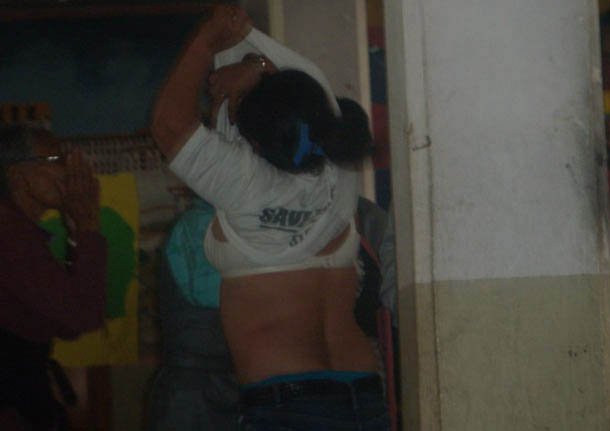 Dharamshala: - The Tibetan Women's Association (TWA) has prepared a shadow report in response to Nepal's report to the 49th session of the Convention for the Elimination of Discrimination Against Women (CEDAW). The report details abuses against Tibetan women living in Nepal.
Dharamshala: - The Tibetan Women's Association (TWA) has prepared a shadow report in response to Nepal's report to the 49th session of the Convention for the Elimination of Discrimination Against Women (CEDAW). The report details abuses against Tibetan women living in Nepal.
The report submitted in 2010 to the CEDAW only briefly mentions refugee women, claiming that their rights are protected. No mention of Tibetan women as a group or claims that abuses exist are made in the report.
According to the report by TWA, "women who become internally displaced persons or refugees in foreign countries are much more vulnerable to abuses, such as trafficking and sexual abuse. They are known to be victimized in many ways-verbally, sexually,physically and mentally within refugee camps."
TWA, the second-largest Tibetan non-governmental association, seeks to preserve human rights for Tibetan women living in Tibet as well as in exile. With 15,000 members outside Tibet, their slogan is "advocacy for home, action in exile."
The report acknowledges that much progress has been made in Nepal to ensure the equality of women in general, but says that that equality has not extended to Tibetan refugee women. The report cites numerous examples of sexual harassment and other abuses of Tibetan women by Nepali police.
Human Rights Watch conducted an investigation into the harassment of Tibetan women, using interviews, eyewitness accounts and accounts from medical professionals. Several specific examples are cited in the TWA report. The cases cited in the report have taken place at protests outside of the United Nations (UN) House and the Chinese Embassy. Women are often touched and spoken to inappropriately both at the protests and at the police station following arrest. The arrest itself routinely happens without a warrant.
Other abuses concern "refoulment," the deportation of any refugee whose life or freedom could be in danger upon return to their country. Refoulment is prohibited by international law. However, there have been several cases reported in Nepal against Tibetans.
The report cites one particularly grim case concerning the treat of deportation. A Tibetan woman traveling in a group of seven was raped 12 times by Nepali police officers. The group was told that they would all be deported if the woman did not agree. Later, the Nepali Ministry of Home Affairs denied the police involvement.
Welfare officers and medical examiners at the Kathmandu reception centers say that the rape of Tibetan women by Nepali police is very common. Fearing deportation, social ostracizing or, for nuns, expulsion from their order, the women typically do not report the rape.
The report goes on to detail the abuses of women's political rights in Nepal. During the 2010 Kalon Tripa elections, both Tibetan woman and men were prevented from voting at three different voting centers. In 2008, 560 Tibetan women were arrested following three all-women rallies in Kathmandu.
The TWA calls for the government in Nepal to take action to end arbitrary arrest, public ally oppose deportation, ensure that police officers stop sexually assaulting female protesters, oppose the deportation of any Tibetan who faces the risk of persecution, and conduct investigations into sexual abuses taken place since the last CEDAW report.
So far, the report claims, "Nepali security has not refrained from reining in the Tibetan people in Nepal, especially the women, for expressing their resentment and exercising their basic human rights: freedom of speech and expression."


![Tibet has a rich history as a sovereign nation until the 1950s when it was invaded by China. [Photo: File]](/images/stories/Pics-2024/March/Tibet-Nation-1940s.jpg#joomlaImage://local-images/stories/Pics-2024/March/Tibet-Nation-1940s.jpg?width=1489&height=878)















